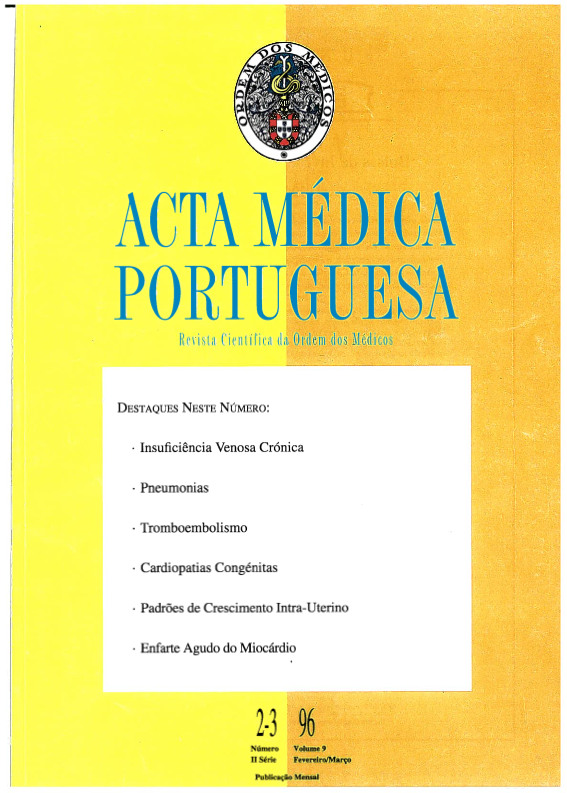Asialotransferrina discriminante do consumo excessivo activo de álcool, sub-agudo e crónico. Utilidade clínica na doença hepática.
DOI:
https://doi.org/10.20344/amp.2561Resumo
The determination of serum levels of carbohydrate deficient transferrin (CDT) and transferrin ratio in the persistent abusive alcohol consumer arises with promising utility in the study of alcohol related disorders. This series shows the excellent specificity (97%), though poor sensitivity (52%), for CDT. However the CDT/Tft ratio affords a higher sensitivity, reaching 74%, maintaining the high specificity. In persistent abusive consumers (> 70 g/day) this index, which is positively correlated with serum transferrin, is capable of defining these amounts of alcohol per capita with a high frequency and provides independent information since it is not significantly correlated with the levels of traditional biological markers (AST, ALT, GGT, AGV). Although with defined methodological limitations, these indexes denote, with the improvement of technical accessibility, a practical applicability in the screening of chronic abusive consumers. In the field of hepatology the behaviour of CDT and the transferrin ratio is capable of showing the involvement of ethanol in the study of the nature of a chronic hepatic disease with a high frequency. However, the degree of liver lesion show by the PGA hepatic index, has no significant influence on the serum levels of CDT and the transferrin ratio. In this series, the circumstances and conditions of alcohol consumption seem to be the independent determinant of the informative character which these indexes reveal.Downloads
Downloads
Como Citar
Edição
Secção
Licença
Todos os artigos publicados na AMP são de acesso aberto e cumprem os requisitos das agências de financiamento ou instituições académicas. Relativamente à utilização por terceiros a AMP rege-se pelos termos da licença Creative Commons ‘Atribuição – Uso Não-Comercial – (CC-BY-NC)’.
É da responsabilidade do autor obter permissão para reproduzir figuras, tabelas, etc., de outras publicações. Após a aceitação de um artigo, os autores serão convidados a preencher uma “Declaração de Responsabilidade Autoral e Partilha de Direitos de Autor “(http://www.actamedicaportuguesa.com/info/AMP-NormasPublicacao.pdf) e a “Declaração de Potenciais Conflitos de Interesse” (http://www.icmje.org/conflicts-of-interest) do ICMJE. Será enviado um e-mail ao autor correspondente, confirmando a receção do manuscrito.
Após a publicação, os autores ficam autorizados a disponibilizar os seus artigos em repositórios das suas instituições de origem, desde que mencionem sempre onde foram publicados e de acordo com a licença Creative Commons









